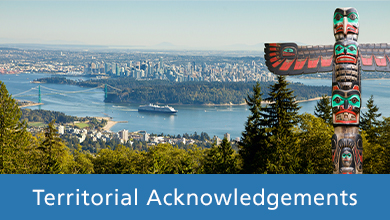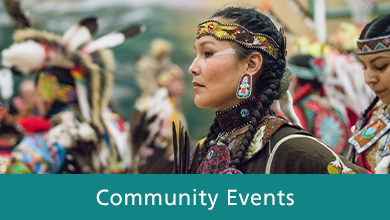June is National Indigenous History Month in Canada, and this year, PIPSC members across the country are mobilized for change.
As Canadian public service professionals, it’s important to recognize that Canada has been inhabited by Indigenous peoples for thousands of years. We’re actively engaging in reconciliation with First Nations, Inuit and Métis communities. And we’ll explore the issues that Indigenous peoples face in the workplace with an eye-opening webinar.
This year, we’re being mindful of the land we’re on, in respect of Indigenous peoples. We’re going to learn about Indigenous traditions, languages and art.
5 reasons that motivate us to take action for reconciliation
- According to the language vitality criteria set by the United Nations Educational, Scientific and Cultural Organization (UNESCO), at least 87 Indigenous languages in Canada are at risk of disappearing. The government must step up to support Indigenous language revitalization projects.
- Although the federal government committed to end drinking-water advisories in First Nations reserves by 2021, the timeline has now been postponed until 2026. Considering the essential nature of clean drinking water, this delay is unacceptable to both Parliamentarians and Indigenous leaders.
- Inuit across Nunavut are suffering from a severely underfunded Nunavut Housing Corporation. Housing is a human right and the government must intervene to resolve this health and housing crisis.
- Systemic discrimination is still rampant in our country’s police system, with Indigenous people being 10 times more likely to be shot and killed by a police officer than a white person. We all have a role to play to end systemic racism.
- Truth and Reconciliation Report recommendations are still not fully implemented.
5 reasons we’re inspired by the activism of Indigenous community leaders
- The National Association of Friendship Centres is expanding their service offering, creating community hubs for Indigenous people everywhere.
- Indigenous Health Centres are offering traditional healing services throughout the country.
- Territorial acknowledgements are becoming more commonplace. It’s important to remember that settlers displaced Indigenous communities to build our cities and towns, and that we can work to make amends.
- Canada has finally apologized to Inuit communities for forced relocations, family separation and sled dog killings imposed on Inuit from 1950 to 1975.
- Arctic fashion is hitting the international stage at New York and Paris runways, bringing attention to northern Indigenous communities.
Take action
- Make a donation to the Legacy of Hope Foundation that has stepped up to provide services where governments continue to fail.
- Read President Debi Daviau’s statement on the discovery of the bodies of 215 Indigenous children at the site of the former Kamloops Residential School.
REGISTER FOR THE WEBINAR TERRITORIAL ACKNOWLEDGEMENT
Register for the June 29 webinar with Local love
Senator Kim Pate and Mocassin Joe CAUT
INDIGENOUS COMMUNITY EVENTS FRIENDSHIP CENTRES
Quebec: Kahnawake Pow Wow National Association of Friendship Centres
Gesgapegiag Pow Wow Wabano Centre
Ontario: Wikwemikong Pow Wow Native Montreal
Nunavut: Rankin Inlet Square Dance competition
National: Indigenous Day Live






